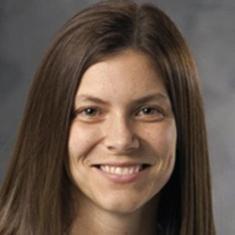“If you can't change something, change the way you think about it."
This quote was at the bottom of every email my longtime mentor would send out. For years, I never really paid attention to it, as so many people include their title, department, or other company-related info after their name. But one night, there it was, staring at me. She and I had been exchanging emails about coverage for my upcoming vacation—something I desperately needed as I was starting to feel burned out and needed to recharge. As I read these words, they resonated deeply with me and over time they, in a way, became my mantra.
Change is difficult and something I sometimes struggle with. I often focus on the negative aspects of what is about to change instead of seeing potential benefits. Other times, I encounter things that I cannot change but wish I could, and am left feeling frustrated or powerless. After reading this quote, I somehow felt empowered. It was like the gravity of not having or achieving the desired result, had suddenly been lifted off me. All I had to do was look at things differently.
At the time, I was still early in my career and focused on honing my medical skills and knowledge. I did not have time to reflect further on how to “be the change.” Fast forward five years, and with more experience under my belt I started to see things through a different lens, things that needed changing. I felt ready to embark on a new path.
In October 2019, I accepted the position of Assistant Medical Director at my clinic, and I saw it as an opportunity to become more involved in change efforts at the clinic level. However, the title did not automatically make me a good leader. I quickly realized I lacked the tools and knowhow to make change happen. That is when I learned about the Primary Care Transformation Fellowship, which is geared toward equipping clinicians with knowledge and skills to lead health care transformation.
Through the Primary Care Transformation Fellowship, I have learned much about how to be a better communicator, engage key stakeholders to achieve buy-in, and collaborate more effectively based on personal styles and preferences. I have also gained a clearer understanding of what Lean management means and how to problem solve using the A3 methodology. While I cannot say I am an expert on practice transformation (yet), I can say I feel more confident engaging in conversations with others and thinking through the various steps and processes needed to design, execute, and evaluate a project.
When choosing my transformation project for the fellowship, I knew I wanted to do something that would address provider and staff burnout. After learning about the University of Colorado’s model for primary care redesign, I was excited to implement something similar at my clinic. By working together in care teams, empowering team members to work at top of scope, and redistributing the workload so that it optimally utilizes clinician resources, I hope to create a work environment where providers and staff feel more unified, valued, appreciated, and less overwhelmed. This in turn, should lead to decreased burnout rates while improving the patient experience and quality of care.
However, one thing the pandemic has taught me is that even the best thought-out plans can be disrupted. I have and will continue to encounter many hiccups, roadblocks, or other hurdles along the way that I cannot change. But, with the skills I have acquired through the fellowship and by changing my perspective or the way I think about it, I know I will be able to come up with new ideas or ways to bring about positive change.
Debra Whiteheart is a fellow with the Primary Care Transformation Fellowship Program. Email debra.whiteheart@duke.edu with questions.
Editor’s note: Blogs represent the opinion of the author, not the Department of Family Medicine and Community Health, or Duke University.
